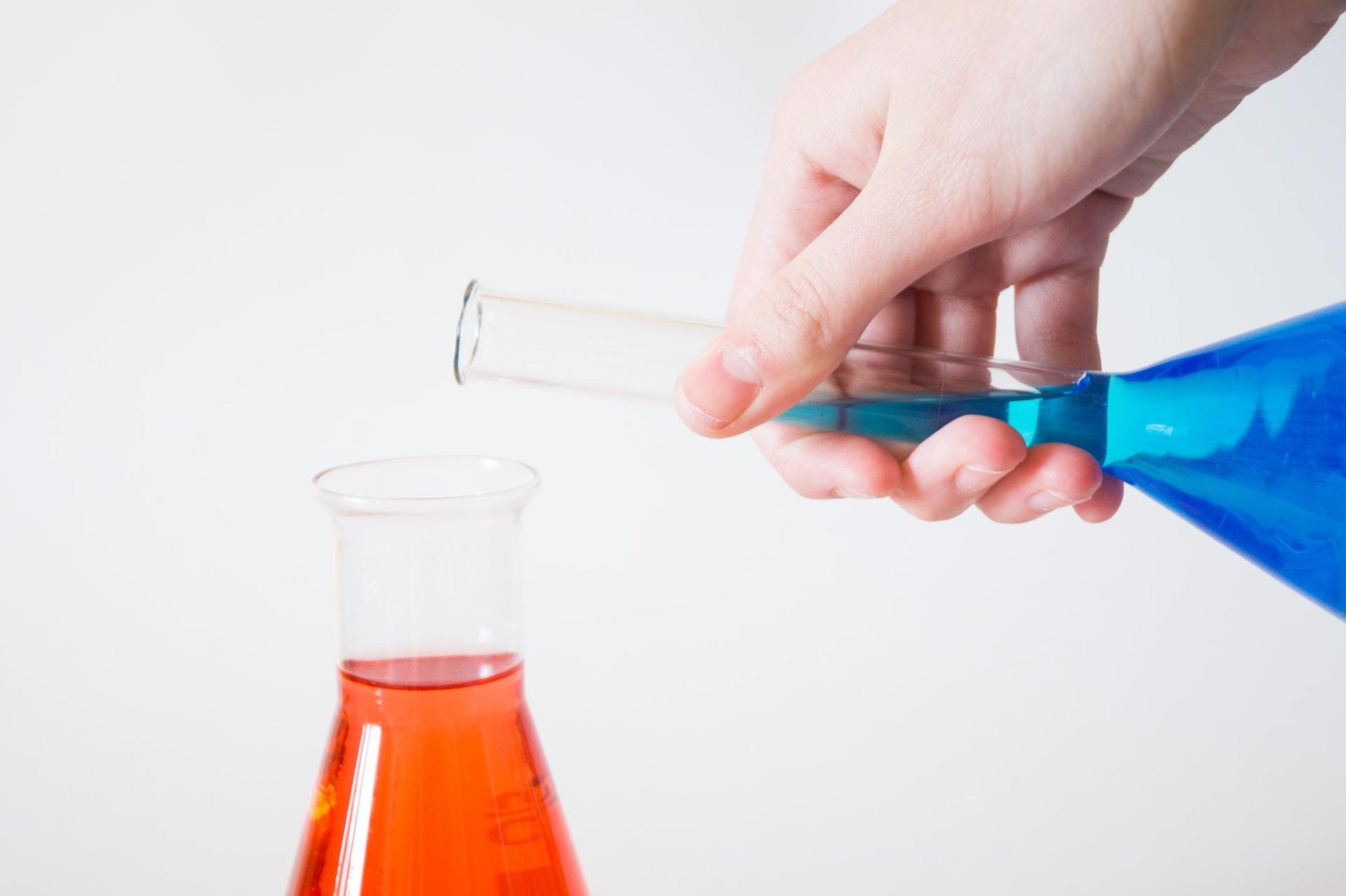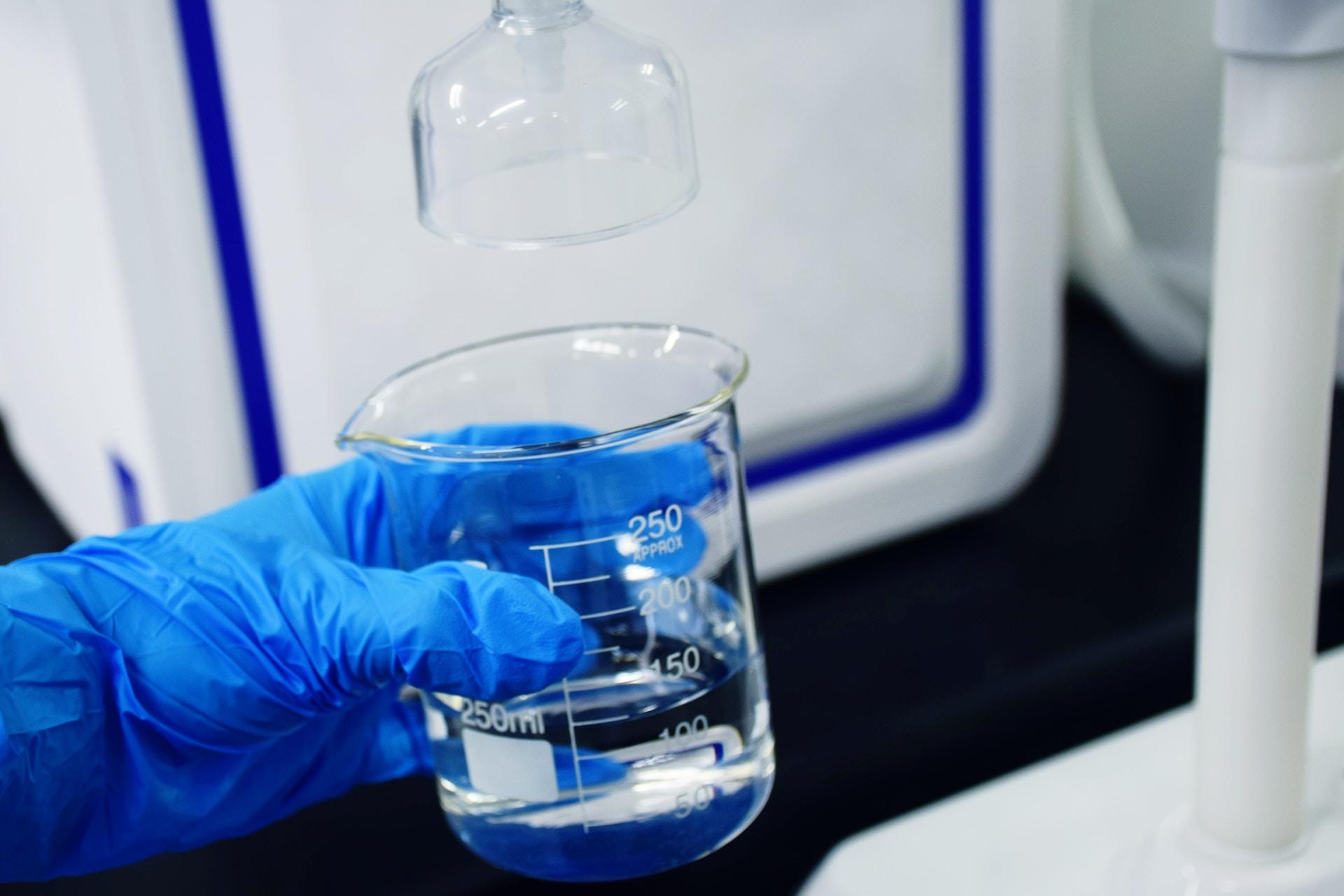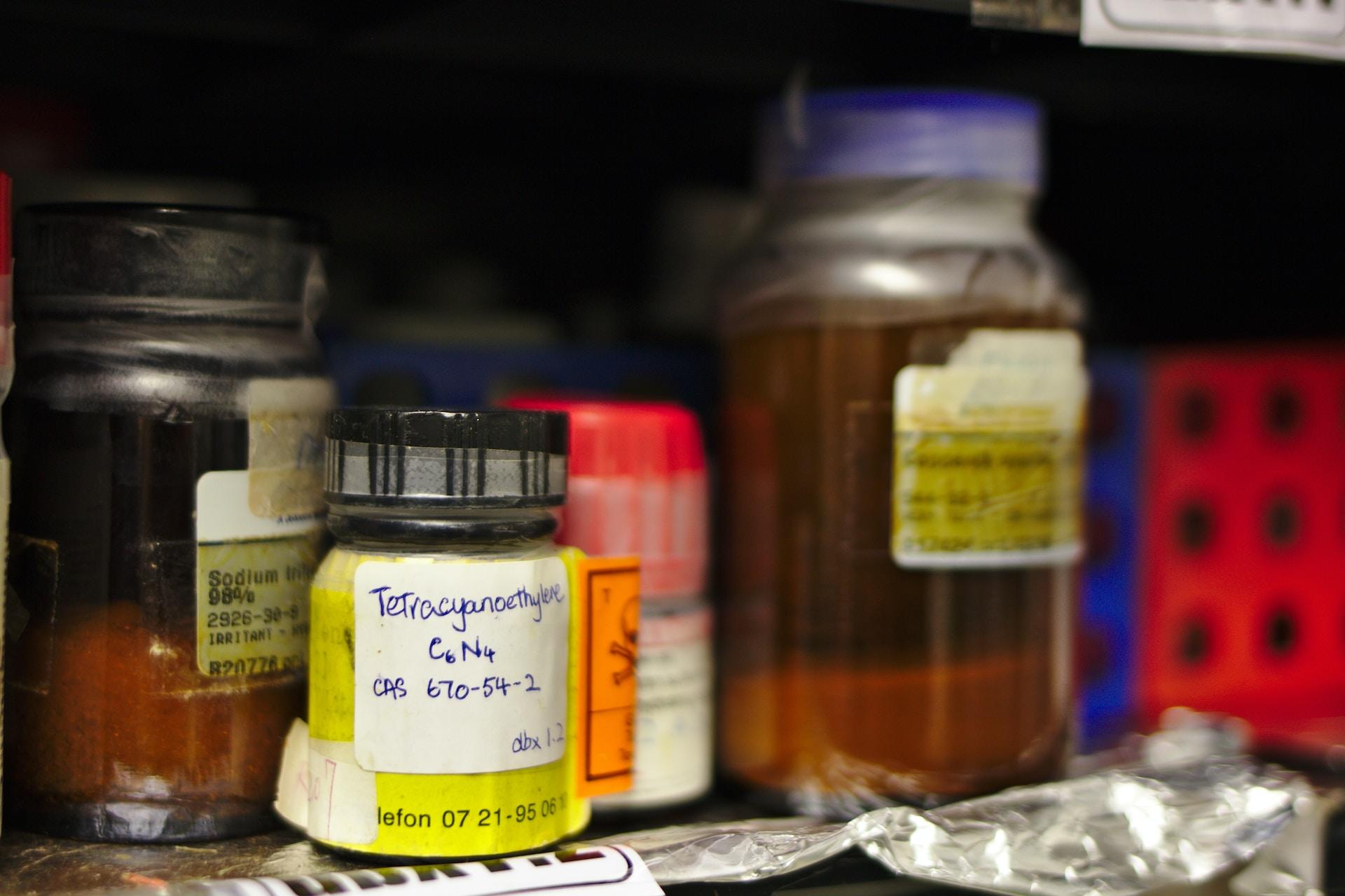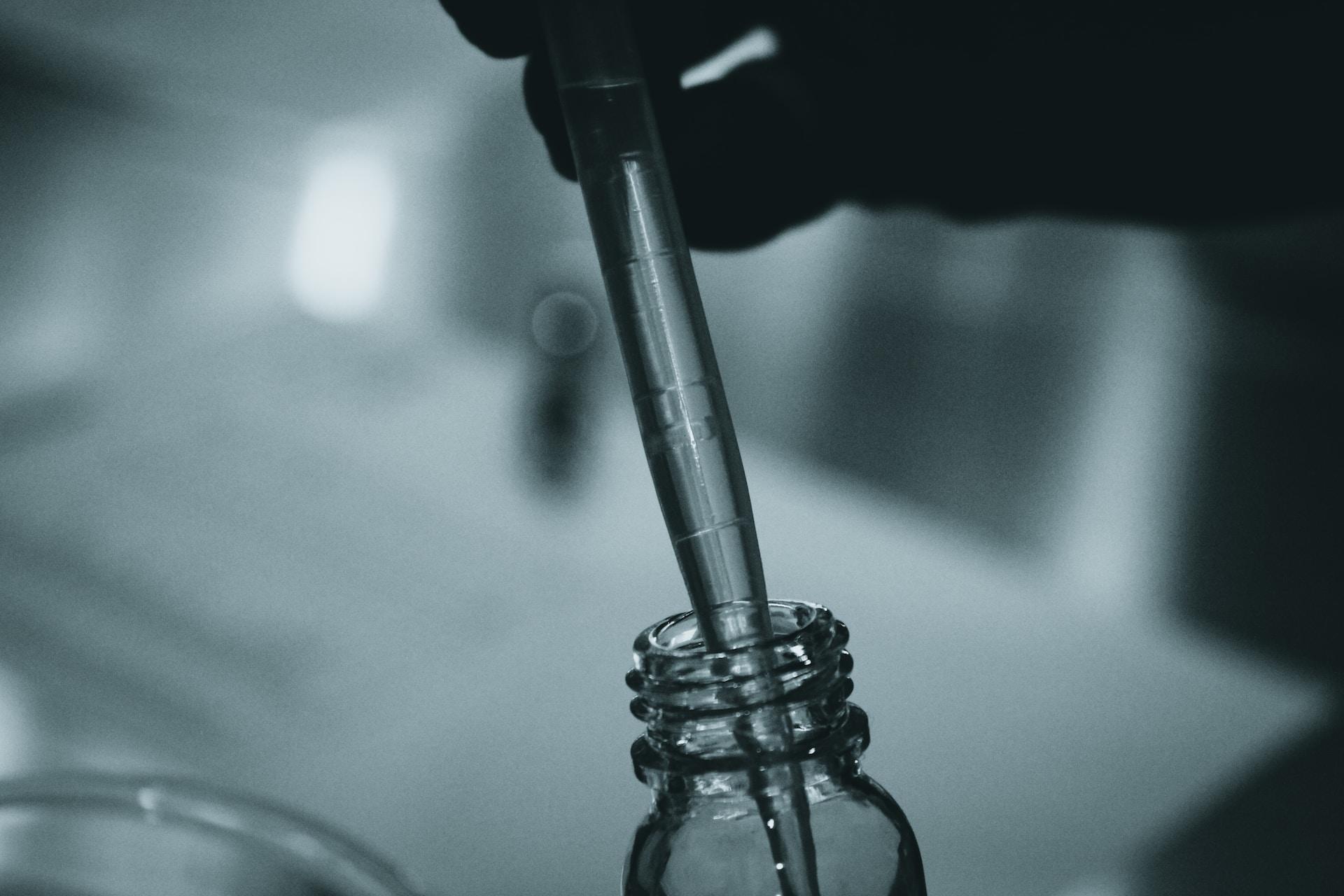If you're studying VCE Chemistry, one thing you'll have to focus a lot of your time and energy on will be your exam.
The end-of-year examination which counts for 50% of your study score (as per the latest study design), is the only part of your VCE Chemistry course that will be marked externally. As it counts for such a significant part of your overall study score or grade, you'll want to do particularly well on it.
Here, we're going to look at how hard VCE Chemistry is, how to get a good score, what's on the exam, and the best ways to prepare for it.

How Hard is VCE Chemistry?
VCE Chemistry should be challenging and, for most students, it should be the most advanced chemistry they've seen thus far in school.

However, it's very difficult to gauge whether one particular subject is inherently more difficult than another as every student is different. Some students will excel in certain subjects like maths and the sciences whereas others may find English and the humanities much easier. VCE Chemistry should be challenging, but it shouldn't be impossible.
It's also worth mentioning that VCE subjects are scaled, which means that the raw scores from assessments and examinations are adjusted to ensure that results are comparable across all students regardless of the subject combinations they chose.
Basically, with VCE Chemistry, you just have to do as well as you can and as long as you do better than most of the other students studying chemistry, you'll be given a good study score.
How VCE Exam Scores Are Calculated
As mentioned, the VCE subjects are scaled rather than using the raw score that students get on an exam. After all, if a certain subject puts out an exam but everybody gets over 40 (with 50 being the maximum), that would suggest that either the exam was really easy or all the groups of students studying that particular subject all excelled.
However, by looking at how those students also performed in their other subjects, you can tell which groups of students tend to perform well and the overall difficulty of the exam. If the same groups of students all did quite poorly on another exam, then it might be because the exam was particularly difficult.
Instead of giving students the exact scores they get on a particular exam paper in a VCE subject, scores are calculated based on how students performed against one another and across different subjects.
For VCE exams, the average student receives a subject score of 30. If a student gets a 30, it means that there are basically as many students with a better score as there are students with a worse score.
Help boost your score by studying with the help of a chemistry tutor on Superprof.
How VCE Scaling Works
Once the students have been placed in order and given their score according to how they performed against other students in the same subject, their score is then scaled according to the relative difficulty of the subject in comparison to the other subjects.

The maths behind this is too complicated to get into right now, but it basically means that they look at students across all subjects and then adjust the distributed scores to account for stronger groups of students in different subjects.
For example, a 30 in Latin, which has historically attracted a strong group of students in 2020, was scaled so that a 30 in Latin became a 46! This is because the students taking Latin regularly outperformed their peers in other subjects.
Students needn't really concern themselves too much with all of this and instead should focus on outperforming their fellow students to get a better score.
How Hard is it to get a 30 in VCE Chemistry?
Because of the way that scores are calculated in VCE subjects, getting a 30 basically means that you scored as well as the average student.
If you go to an average school and generally neither perform better nor worse than your classmates, you're likely on course for a 30 in chemistry (before scaling). However, you should really consider whether or not you could work harder, do better, and aim for a more impressive score than the average.
With a very small amount of work and a bit of organisation, a 30 in chemistry should be easily attainable because all you've done is the bare minimum to perform as well academically as half of the students taking chemistry.
As you'll see very soon, you can quite easily improve your study score by revising, knowing your stuff, and outperforming your fellow students.

What Is On the VCE Chemistry Exam?
The best way to do well in your VCE Chemistry exam is by knowing what's on the exam and learning it. It's really not more complicated than that, but in practice, this is easier said than done.

For one, the VCE Chemistry Study Design has been changed so students that are starting VCE Chemistry this year (2023) will have different exams and topics from those who started last year.
If you're sitting your unit 3 and 4 end-of-year exam in 2023, you can refer to the previous VCE Chemistry Study Design (2017-2023) but if you're doing Units 1 and 2 this year, then you'll have to refer to the newer study design.
As the students starting VCE Chemistry this year will be doing Units 1 and 2 in 2023 and Units 3 and 4 in 2024, the new study design notes the accreditation as:
- Units 1 and 2 – 2023-2027
- Units 3 and 4 – 2024-2027
Don't worry too much about it as it just means that 2023 is the cut-off point for students starting VCE Chemistry. If you started before then, refer to the old study design, and if you started after then, refer to the new one.
You can always ask your teacher where to go for the relevant study design, too!
VCE Chemistry 2017-2023
As the VCE Chemistry Study Design has changed this year, the exam specification for the 2024 exam isn't available at the time of writing, though this will likely change this year or next.
For students taking the end-of-year written examination in VCE Chemistry this year, this is the format it takes and what you need to know about it.
Firstly, the exam lasts nearly 3 hours, with 15 minutes of reading time and 2 hours and 30 minutes of writing time.
The exam will account for 60% of the study score, which has been decreased to 50% for the newer study design.
Students will have a question and an answer book and the exam is made up of two main sections: Section A and Section B.
Section A
Section A of the exam is 30 multiple-choice questions worth 1 mark each. That means this section is 30 marks in total.
Section B
Section B has short and extended answer sections with questions worth multiple marks. The number of questions in this section can vary, but the total section is worth 90 marks.
As you'll have worked out, this means that the exam has a total of 120 marks up for grabs with a quarter of them in Section A and three-quarters of them in Section B. Keep this in mind when preparing for your exam as you'll likely want to distribute the time spent in each section relative to the number of marks available.
Put simply, spend a quarter of the exam working through Section A and the other three-quarters working through Section B. Of course, you can spend more time in one section and less in another if you need, but it's a good idea to focus your time roughly according to the number of marks available.
Ensure that your study plan is comprehensive with the help of a chemistry tutor on Superprof!
The Units Covered in the VCE Chemistry Exam
Check the relevant study guide for the key knowledge, but students taking their end-of-year exam in 2023 need to focus on the following subject areas:
Unit 3: How can chemical processes be designed to optimise efficiency?
Area of Study 1 - What are the options for energy production?
- Obtaining energy from fuels
- Fuel choices
- Galvanic cells as a source of energy
- Fuel cells as a source of energy
Area of Study 2 - How can the yield of a chemical product be optimised?
- Rate of chemical reactions
- Extent of chemical reactions
- Production of chemicals by electrolysis
- Rechargeable batteries
Unit 4: How are organic compounds categorised, analysed and used?
Area of Study 1 - How can the diversity of carbon compounds be explained and categorised?
- Structure and nomenclature of organic compounds
- Categories, properties and reactions of organic compounds
- Analysis of organic compounds
Area of Study 2 - What is the chemistry of food?
- Key food molecules
- Metabolism of food in the human body
- Energy content of food
Data Book
Students taking the VCE Chemistry exam are not allowed mobile phones or electronic devices with them other than a scientific calculator.
However, an extra resource known as a “data book” is provided to students and this includes a lot of useful information that students can use when answering questions.
Check what will be provided in the data book so that you don't waste any time memorising the information (like the periodic table) that will be given to you in the exam!
The data book for Units 3 and 4 in 2023 includes the following:
- Periodic table of the elements
- Electrochemical series
- Chemical relationships
- Physical constants and standard values
- Unit conversions
- Metric (including SI) prefixes
- Acid-base indicators
- Representations of organic molecules
- Formulas of some fatty acids
- Formulas of some biomolecules
- Heats of combustion of common fuels
- Heats of combustion of common blended fuels
- Energy content of food groups
- Characteristic ranges for infra-red absorption
- 13C NMR data
- 1H NMR data
- 2-amino acids (α-amino acids)
How to Prepare for the VCE Chemistry Exam
There are a few ways to prepare for the exam and as every student is different, different approaches will work better for certain students.

Get into the habit of studying and going back over your classes as soon as you start VCE Chemistry. It'll feel like less of a chore when you have to sit down and revise if you've been doing this every week for nearly two years.
Study the things you don't know more than the things you do. When you get something wrong while studying, make a note to revisit it more frequently than the stuff you do know. You'll want to make notes in each lesson, go back over the questions you get wrong in tests and exams, and surround yourself with useful resources.
Finally, practise a lot with past papers. Get into the habit of sitting down and doing an entire exam like it was the real thing. Exam practice is one of the best ways to improve your performance on the day. This will give you a better sense of time, the kinds of questions you'll face, and how to maximise the number of marks you can get in the time you're given.
Don't forget to refer to the appropriate Study Design so that you know which topics will and won't be on the exam that you'll sit, too.
If you're struggling, don't forget you can always look for a year 12 chemistry tutor to help you!
Summarise with AI:















